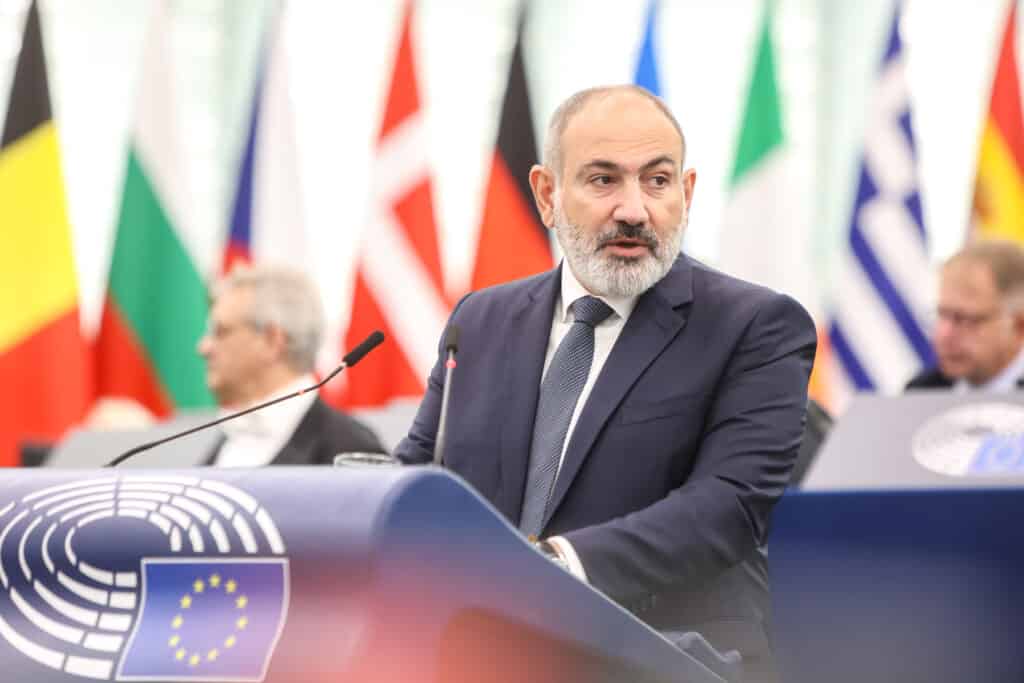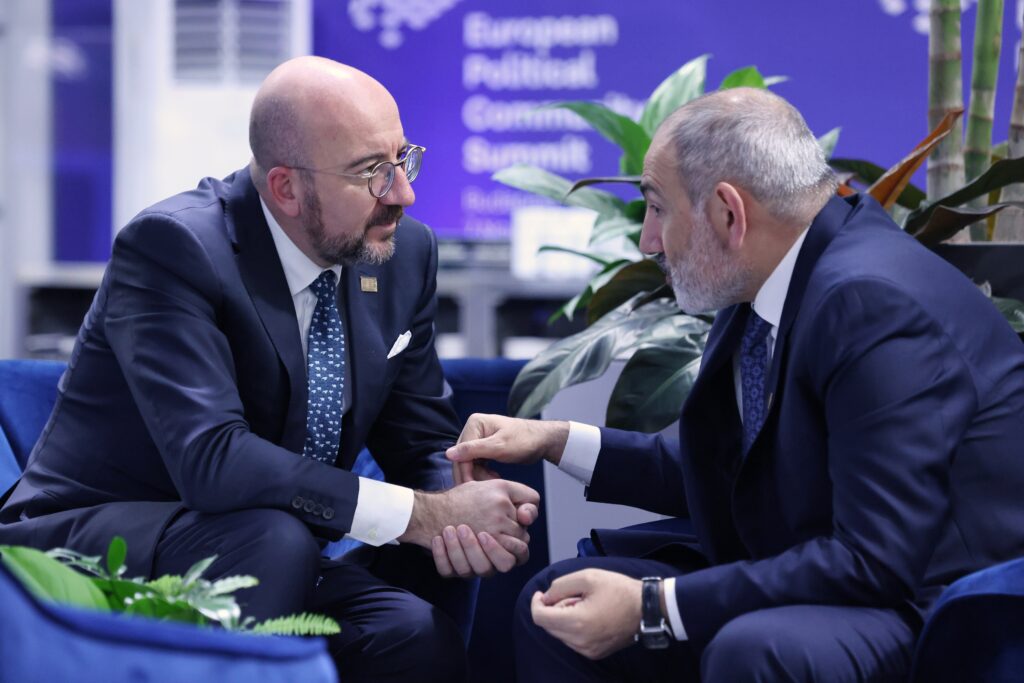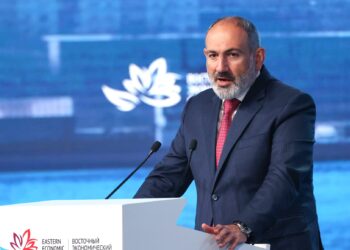Brussels – Yerevan moves an inch closer to Brussels, or at least it is trying to. The Armenian government approved a bill aimed at applying to join the European Union as soon as possible. The small Caucasian country, traditionally an ally of Moscow, is gradually leaving the Russian orbit to approach Europe. However, the road still seems uphill. In the background, as always, is the shadow of the war with neighboring Azerbaijan.
The measure approved yesterday (Jan. 9) by Armenia’s executive commits the former Soviet republic to embark formally on the path to EU membership. It will now have to be discussed by the national parliament. Prime Minister Nikol Pashinyan stressed that the “essence and context of this issue” must be understood, echoing his speech at the European Parliament in Strasbourg in October 2023, in which he reiterated that “Armenia is ready to join the EU, to align as much as possible.” He nonetheless pointed out that should this process truly begin, it will certainly not be short.

The government’s initiative follows last year’s people’s petition, which gathered the 50,000 signatures needed to present the proposal to the House.Should the deputies approve the text (the Civil Contract ruling party holds 71 of the 107 seats in the single-chamber legislature), a referendum will follow to allow the electorate to express their view on the issue.
“If this bill is adopted, we must have a clear plan of action,” the premier said. “We should work together with the EU to discuss and develop the roadmap,” he added. The day before the cabinet endorsed the bill, Foreign Minister Ararat Mirzoyan had said that a new partnership with Brussels could be signed in the coming months, which could have included visa liberalization.
In recent years, Yerevan has gradually moved away from Vladimir Putin‘s Russia and closer to the West, intensifying the political, economic, and military cooperation with European partners. After Moscow failed to guarantee the terms of a ceasefire in 2020, which was supposed to prevent Azerbaijan from attacking the self-proclaimed republic of Artsakh in Nagorno-Karabakh (an ethnic Armenian-majority enclave within Azerbaijani borders), Baku invaded the separatist province in September 2023, annexing it.

However, as anticipated by Pashinyan, progressing on the road to EU entry will not be easy. Beyond political proclamations, Yerevan is still heavily dependent on Moscow (which maintains a military base on Armenian territory) at an economic, trade, and energy level. In addition, the 27 member states are buyers of natural gas from Baku, which reaches continental Europe via the TAP (the last section of the so-called Southern Gas Corridor).
Just in the past few days, the Azerbaijani president called Armenia a “fascist threat,” suggesting that it should be “destroyed.” It was not a conciliatory statement, which calls into question progress (mediated by the EU) towards a peaceful resolution of the 30-year conflict between Baku and Yerevan.
The Kremlin merely noted, through its spokesman Dmitry Peskov, that Armenia is free to decide on its international placement but that it cannot continue to remain a member of the Eurasian Economic Union–the EEU is a trading bloc that brings together Armenia, Belarus, Kazakhstan, Kyrgyzstan, and Russia–if it joins the 12-star club. Last June, Yerevan announced its intention to leave the CSTO, the Russian-led military alliance (which includes the same EEU members plus Tajikistan), in controversy toward Moscow’s inability to guarantee Armenian security during the Azerbaijani blitzkrieg campaign in the fall of 2023.
English version by the Translation Service of Withub

![Gli Stati del Caucaso, con l'Armenia (in rosso) al centro delle mosse europee [mappa: Wikimedia Commons. Rielaborazione: Emanuele Bonini per Eunews]](https://www.eunews.it/wp-content/uploads/2024/07/csto-map-350x250.png)




